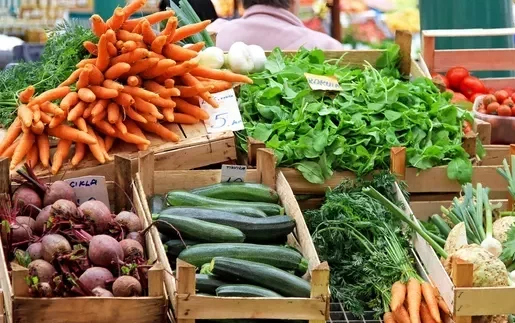Growing up in the big smoke of Auckland while spending the weekends on the family farm just north of the city gave Farmers Weekly’s new columnist Daniel Eb a unique perspective on the way the country’s food system operates.
Farmer, 2021 Nuffield Scholar and agri-communications business owner Eb describes it as having his “foot in both camps”.
Eb has seen firsthand from both the side of a food producer and an urban consumer how broken the New Zealand food system is, prompting him to try and do something about it.
“In a lot of respects we’re this incredible food- and fibre-producing nation, but at the same time almost a quarter of New Zealanders live with some degree of food insecurity,” he said.
“We’re also the second most obese country in the OECD. Something like 25% of all our medical costs are lifestyle costs based on the type of food we’re eating.
“I believe we treat these statistics as a dirty little secret in New Zealand.”
The harrowing data has been one of the main reasons behind much of Eb’s work, including recently completing a Nuffield report investigating a complete redesign of the Aotearoa food system, called “The Home Paddock“.
The Nuffield report, and anything Eb gets involved with through Dirt Road Comms, is inspired by a sentence spelled out on a Post-It note on his computer, stating “You support those building a just and regenerative food system in Aotearoa New Zealand”.
This is the end goal, but Eb says a just and regenerative food system looks a lot different to the food system in its current state.
“The best outcome for me would be the flipping of those stats – no food insecurity, we’re the healthiest nation in the world and we’re getting healthier,” he said. “Everyone having the opportunity to constructively connect with food and farming. Whether that means that they’re able to get on a farm, or there’s more focus on food and farming in the classroom, or they’re able to build relationships with a farmer.”
The way we have set up the current food system, Eb says, has disconnected urban folk from the people who grow their food.
“A good example is I live on the outskirts of Auckland, and I can walk 400m and I’m standing on a farm that operates the same as a farm in the back blocks of Otago that’s really isolated.
“They have to ship their livestock on a truck to a processing centre, it gets slaughtered, packaged, 10% of it goes to a supermarket, and 90% of it goes overseas.
“So why is a farm that is sitting 400m from me on the outskirts of Auckland running the same model as a farm that is geographically isolated from a city?”
Eb found out firsthand that answering this question is easier said than done when his family looked at options to slaughter, package and market their own beef products grown on their North Auckland farm.
“When we asked ourselves that question, we got a whole lot of other things that are propping that up,” he said.
“It is really hard to run a direct-to-customer food brand in meat and milk because you can’t slaughter on farms and sell direct to customers due to MPI [Ministry for Primary Industries] regulations.
“We’d have to spend a million dollars to build a micro abattoir, which we don’t have. So where is the institutional support for us to build this little local food system?”
This is where, Eb says, the progress is lost, given the large number of farmers who are open to the idea of building local food systems.
“What I’ve found, while doing this work for like five years, is that most farmers actually agree with that. I’m yet to meet a farmer that’s not interested, at least partially, in potentially supplying the local community.
“But we can’t expect farmers to do this by themselves, and some have, which is good on them, because that’s hard work and they take on massive risk to do so.
“But the benefits are for everyone. So either at an industry level or the government level we have to support them, because that’s just not happening.”
Eb says this can be done by changing the conversation on what the underlying purpose of the food system is.
He believes that food should sit alongside other basic needs like education and health.
“If we could start again and redesign our food system, there is no way we would give that much market power to for-profit enterprises right in the middle of our food system.
“We wouldn’t accept that with education. If there were two main providers of schools there would be a revolution. We wouldn’t accept that with hospitals, with our health system, so why should we accept that with the food system like we are?
“And I would argue that food sits right there with education and our healthcare system.
Eb’s newest project, the rotating Farmers Weekly column Eating the Elephant, whose authorship he shares with fellow Nuffield scholars Ben Anderson, David Eade and Phil Weir, aims to drive constructive conversation around this and other issues affecting the sector.
“So we’re all agreed that some transformation, some degree of transformational change, needs to happen within our food and farming sector, and it’s not getting anywhere by just shouting at each other,” he said.
“We needed a constructive outlet for the conversations the four of us have been having.
“And with all due respect to a lot of the older people out there, change very, very seldom comes from the older generation.”
“It’s younger people with skin in the game, that are often a little bit less jaded, a little bit less accepting of the way things are – those are the people that bring fresh energy and fresh ideas and end up changing things.”










